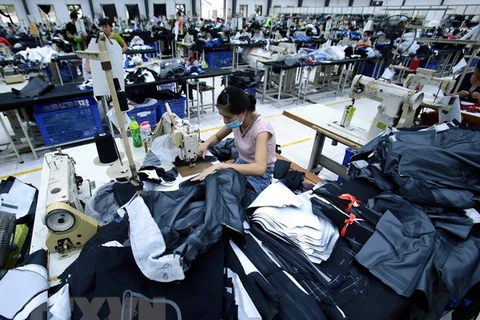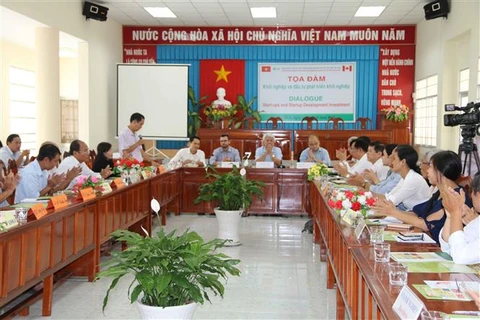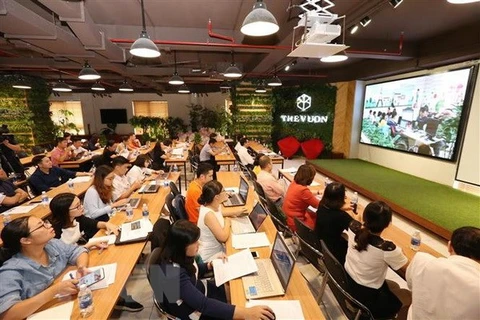 Workers process seafood at a factory in Dinh An town of Tra Cu district, Tra Vinh province (Photo: VNA)
Workers process seafood at a factory in Dinh An town of Tra Cu district, Tra Vinh province (Photo: VNA) Hanoi (VNA) – The Ministry of Planning and Investment (MPI) held a workshop in Hanoi on September 19 to provide updates on the Law on Support for Small- and Medium-sized Enterprises and its enforcement in order to solve some of the issues that have arisen during its implementation.
MPI Deputy Minister Vu Dai Thang said that about 98 percent of the over 700,000 businesses in Vietnam are small- or medium-sized enterprises (SMEs). They play an important role in creating jobs, improving worker incomes, reducing poverty, and contributing to the state budget and economic growth. They are the main force tapping into niche markets and capitalising on the social resources available to serve economic development.
He noted that the Law on Support for SMEs, to take effect in 2018, is a practical solution to boosting the development of local businesses and the economy. Its general role is to support SMEs in a timely manner since they are set up, pushing to achieve the goal of 1 million businesses operating effectively in the country by 2020.
According to Deputy Director of the MPI’s Enterprise Development Agency Nguyen Hoa Cuong, the private economic sector – of which SMEs make up the majority – contributes about 48 percent to the country’s GDP and creates over 50 percent of total jobs.
The MPI and other ministries and sectors have stepped up their capacity in disseminating the law, highlighting the effects and benefits that businesses could gain from it. It has helped to improve the relevant legal system and better the investment and business environment of Vietnam, he said.
He added that the establishment of new companies has increased over the last couple of years, gradually creating a widespread influx of startups. During the first eight months of 2018, more than 87,000 new firms were founded.
The MPI affirmed that the new law pays special attention to encouraging innovative startups in order to fuel economic growth towards sustainable development. The support provided will focus on practical aspects like fee and tax reduction; providing legal aid and advice on intellectual property and copyrighting; and manpower training.
Cuong said some enterprises wish authorised agencies to clarify the criteria for innovative startups and create mechanisms and chances for the public and businesses to monitor and assess the law’s enforcement.
The ministry said to ensure that SMEs will benefit more from this law, it will continue to review and assess the law’s implementation so as to assist companies in a more substantive and effective fashion.
In particular, the MPI will submit a draft decree on the organisation and operation of the fund for SME development to the Government. It will also accelerate the drafting of circulars guiding the implementation of this law to complete the legal framework in this regard. –VNA
VNA
























